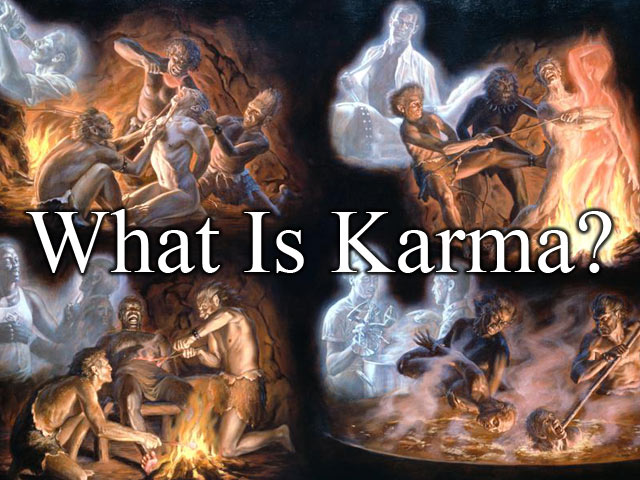Q. 1. Does a child who is forced to eat meat by his parents incur negative karma? Does the logic change for a mentally unstable adult?
Answer by Romapada Swami: The laws of karma are very intricate, subtle and stringent. It is not easy to always determine a one-to-one correspondence between a particular action and what exact reactions are incurred as a result, and what proportion is assigned to whom.
In the case of a young child or a dependent who is incapable of making decisions for themselves, great part of the responsibility lies with the parents or the caretaker – consequently, they take the major portion of the reaction. We touched on this subject in our discussion on ‘collective karma’ (see Digest 185). A child or an incapacitated person is helpless, dependent and not in a position to assert their will, therefore they are not held accountable for their actions. Nonetheless, there may still be some negative reactions incurred. This is just as much as when a child is exposed to fire, even if it was due to someone else’s fault, the child suffers burns – that’s how the physical laws of nature work, and the subtle laws of nature (i.e. karma) also, in some ways, work similarly.
Thus, a young child would not incur a sinful reaction to the same degree as the person responsible for the decision, and yet one can expect some undesirable consequence. Minimally, this consequence would be in the form of some samskaras (or impressions formed in the mind) resulting from indulging in such acts. The child then becomes conditioned and accustomed to such behavior which could later prove an obstacle and impel them to commit such sins repeatedly.
There are different kinds of sinful reactions, as explained in Padma Purana – sinful reactions already manifest, about to fructify, latent or in seed-like form (quoted in BG 9.2 purport). When one commits a sinful act, apart from the direct consequences, impressions are made in the mind which forms the seed (papa-bija) of a tendency to perform such a prohibited act again and again. Even from our common experience, we know that those who repeatedly break the law feel less and less compunction about doing it again. Thus a person, who is exposed to karma by force of circumstance, even if they come to recognize the mistake, may have to work harder to rid themselves of such a habit than one who is not so disadvantaged. The saving grace, however, is that if they take up the process of pure devotion, even the seed-like tendencies for sinning are quickly burned up.
As children grow up, as they mature in their faculty of independent thinking and asserting their own will, they become increasingly and proportionately responsible for their actions.
Q. 2. What if an adult did not know about the philosophy of karma?
Answer by Romapada Swami: Ignorance of the law does not excuse one from the consequences – this is true even in enforcing state laws. One cannot claim innocence on the grounds that this was how they were trained by their parents or society. In this human form of life, where we are endowed with the faculty of higher intelligence and conscience, it behooves us to inquire into and make ourselves familiar with the laws of God as much as we are expected to do with the laws of state. Thus, those of us who have this human form of life are held responsible for our actions.
Of course, one who knowingly transgresses the law, or one who has the asset of being born and brought up in a culture where such knowledge is readily available and still chooses to ignore it, becomes even more culpable. But in any part of the world, in all civilized societies, there is some form of religious principle which prohibits, or at least greatly restricts and regulates grossly sinful actions such as killing and hurting other living entities – whether or not such regulations are in common vogue or even rightly represented by contemporary religious denominations is a different question, but the vast majority of us still have at least the opportunity to become aware of the existence of such strictures. And any common man, with a little introspection and compassion, can begin to recognize the cruelty in needlessly slaughtering innocent creatures. Thus ignorance is not quite a valid excuse.







